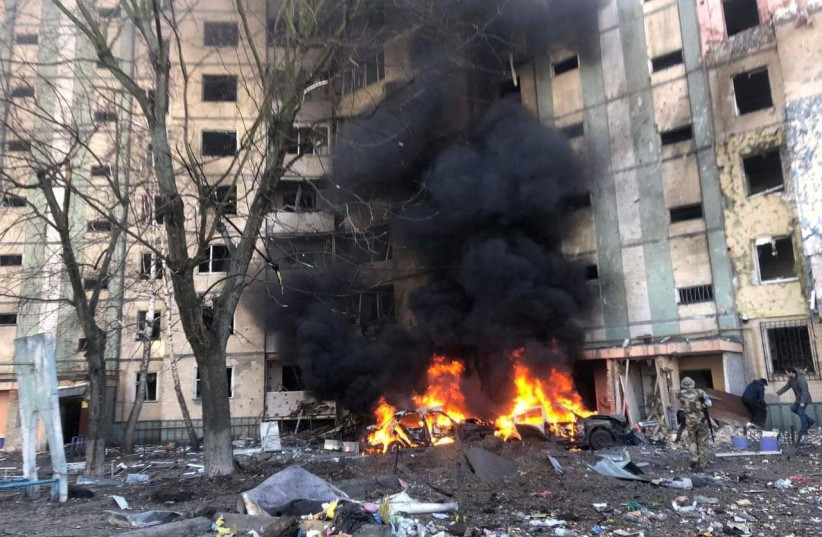Ukrainian President Volodymyr Zelensky gave an important speech to the Knesset on Sunday. It was a momentous moment. A leader of another country – who happens to be Jewish – addressing the representatives of Israel, a Jewish country, to ask for help.
On the one hand, he was critical of Israel for not helping Ukraine. On this, he sounded familiar notes that some other countries have asserted: Israel has taken a balanced approach to the conflict and has not sided with either Ukraine or Russia despite repeatedly condemning the invasion. However, Jerusalem is also providing aid to Ukrainian refugees and is setting up a field hospital inside the battle-torn country.
Where Zelensky erred was in his comparison of the war to the Holocaust. He should have been more sensitive.
Pleading for Israel to impose sanctions on Russian businesses, he asked, “Why has Israel refrained from sanctions on Russia? Israel needs to give answers to these questions, and after that, live with them.” He also asked for air defense systems. It seems a bit late for this request because such complex and expensive systems are sensitive and discussions about their sale and delivery should have happened years ago.
“We are turning to you and asking whether it is better to provide help or mediation without choosing a side,” he said to the MKs and ministers. “I will let you decide the answer to the question, but I do want to point out that indifference kills.”

Zelensky argued that Russia has used terms like “final solution” and that it is thus committing or could commit Nazi-like crimes. The issue here is that Zelensky is not the first to make Nazi comparisons. These days, it is common for many issues and threats to be compared to the Holocaust. In fact, it is Russia that has made outlandish claims that it is fighting “Nazis” in Ukraine.
In a time of such rhetoric, the Ukrainian president who should have known better. He had an opportunity to appeal to Israel, where there is much sympathy for Ukraine. He fumbled in going too far in his comparisons.
Putting aside the Holocaust comparisons, Zelensky can be excused for criticizing Israel’s refusal to impose sanctions on Russia. From his perspective this is an obvious mistake. For Israel though, these are complicated matters that have wide-ranging repercussions. Prime Minister Naftali Bennett was right on Monday when he said that the Jewish state would continue providing aid to Ukraine while dismissing the comparisons to the Holocaust.
With the Iran deal appearing to be taking shape, there are many issues that Israel must consider as it weighs any sanctions on Russia. The continued Iranian use of drones to threaten Israel and Tehran’s recent attacks in Erbil, as well as the Houthi attacks on the UAE earlier this year are pressing.
Israel needs to make it clear that not every conflict in the world has to be focused on “what is Israel doing.” Israel has responsibilities like every country. It has a unique relationship with Ukraine and there is little doubt that most Israelis stand with Ukrainians in their hour of need. Leading Zionists and founders of Israel like Golda Meir – who Zelensky quoted in his speech on Sunday – came from cities like Odessa that are now under threat from the Russian invasion.
Civilians should not be harmed and must be protected. This is without doubt an important issue for Israel to speak out on. It is also unconscionable that millions of people have become refugees, flooding across the border into Moldova, Poland and beyond.
To achieve his goals of eliciting sympathy and support, Zelensky does not need to refer to the Holocaust. As demonstrated by the field hospital opening on Tuesday, Israel is ready to help even without that.
We understand more than many the pain of the Shoah, however it is important that it not be misused. What Russia is doing is bad enough without referring to it – and we stand with Ukrainians because they are victims of a war that they did not seek.
